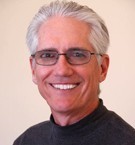I am often asked my opinion of the mega-church model of ministry. I find the model lacking, frankly, but not for the reasons you might think.
Many of us assume that people who attend a mega-church do not experience authentic Christian community. That is what I thought, as well, until I was properly chastised by a group of students I taught in a degree completion program at our 51┬▄└“ extension site in Laguna Niguel. Much to my surprise, I discovered that these older adult students were enjoying a profoundly deep community experience in their small groups at the ŌĆ£mega of all megas,ŌĆØ Saddleback Church.
As it turns out, large churches that care about such thingsŌĆöand Saddleback obviously doesŌĆötypically have the resources to get a greater percentage of their people in community than is the case in smaller congregations with less staff and administrative support. And, so, people in some mega-churches, at any rate, participate in Christian community with their fellow church members in some very meaningful ways.
Community among church members, however, is not the only kind of community necessary for support and progress in the spiritual life. The New Testament also emphasizes community between leaders and followers, between shepherds and sheep, between those who teach the Word and those listen to their teaching. Here, I suggest, is where the mega-church model inevitably runs off the tracks of New Testament ecclesiology.
Consider PaulŌĆÖs ministry among the Thessalonians:
ŌĆ£Being affectionately desirous of you, we were ready to share with you not only the gospel of God but also our own selves, because you had become very dear to usŌĆØ (1 Thessalonians 2:8).
We encounter the same dynamic in PaulŌĆÖs farewell address to the Ephesian elders (Acts 20). Paul claims that he ŌĆ£did not shrinkŌĆØ from declaring to the Ephesians ŌĆ£the whole counsel of GodŌĆØ (verse 27). Notice, however, that we do not find Paul (a) teaching GodŌĆÖs Word in an impersonal auditorium filled with several thousand people who cannot possibly have access to him relationally orŌĆöperhaps worse yetŌĆö(b) functioning as a talking head on a screen imparting the Word at a remote video venue site. If his letters are any indication, Paul taught the Bible in relationship with those who were on the receiving end of his instruction.
Here in Acts 20, the theme forms a powerful literary inclusio (a ŌĆ£sandwich effect,ŌĆØ of sorts) that marks the beginning and the end of the passage. Paul begins his address by reminding the Ephesians, ŌĆ£You yourselves know how I lived among youŌĆØ (verse 18). Then, at the end of the passage, the response of PaulŌĆÖs converts confirms the relational nature of his ministry among them:
There was much weeping on the part of all; they embraced Paul and kissed him, being sorrowful most of all because of┬Ā the word he had spoken, that they would not see his face again. (verses 37-38)
The point here is straightforward. The New Testament model of ministry finds the person teaching the Word in close relationship withŌĆöand directly accessible toŌĆöthose who are taught the Word.
I believe that this should be true not only of our pastor-teachers but also of those who lead worship in our churches. Last Sunday, at Oceanside Christian Fellowship, a young woman named Kelly Olson sang Your Love Never Fails. I sat in the front row looking up at Kelly and found myself particularly touched by her solo during the song. When I later reflected on my experience, the reason I was so moved by KellyŌĆÖs performance became perfectly clear:
For one thing, Kelly nailed the song. But musical skill during worshipŌĆöwhile necessary (I would have been hopelessly distracted if she had sung out-of-tune)ŌĆöis never sufficient. What pierced my heart was not that Kelly nailed the song. It was that Kelly nailed the song. What made the song meaningful was that I knew the person who was ministering to me on our worship team.
In fact, IŌĆÖve known Kelly for the better part of 18 years, since she was in grammar school. She is the daughter of one of my fellow-pastors at the church. He and his wife have two daughters the same age as mine, so the four girls have grown up together as part of our Oceanside Christian Fellowship church family. I had the privilege of seeing God set KellyŌĆÖs heart on fire for him as a young adult, and IŌĆÖve watched her grow in the Lord ever since.
So when Kelly Olson sings, I listenŌĆöin a way that I would never listen to a stranger brought in to nail a Sunday solo on OCFŌĆÖs worship team.
Are you in relationship with those who are teaching you the Word? How about those who lead you in worship? Have you spent any time on a fishing boat with them? Time at a Dodger game with them? Time driving to a retreat with them? Time over lunch with them? Have you spent any time with them at all?
Now I suppose one could argue that the kind of relational ministry outlined above is descriptive of early church practice and not prescriptive for us today. Maybe it is perfectly acceptable for me to be fed the Word by a stranger from a distance on Sundays, while my mid-week small group leader shepherds me in my daily walk with God.
Maybe. But IŌĆÖm not so sure. When (a) the whole Law is summed up in the command to ŌĆ£love your neighbor as yourselfŌĆØ (Galatians 5:14), when (b) we are to be known as Christians by the quality of our relationships (John 13:35)ŌĆöin summary, when healthy relationships are at the very heart of all we are and do as ChristiansŌĆöcan we really dispense with something so central to New Testament church life as the relational connection between the teacher and the hearer of the Word?
IŌĆÖll leave you to wrestle with that one. I, for one, think not.┬Ā
 51┬▄└“
51┬▄└“

.jpg)

